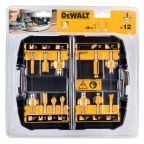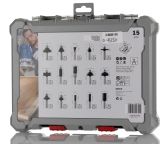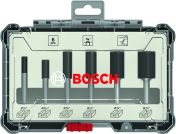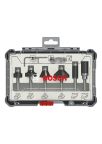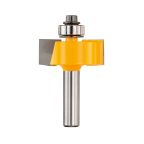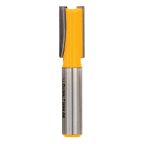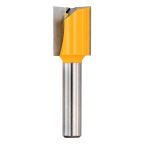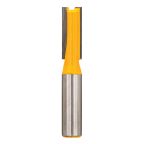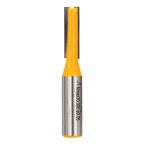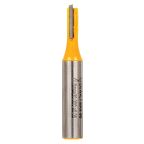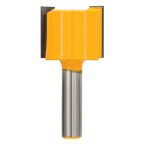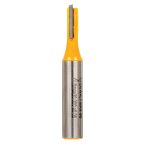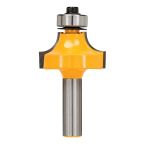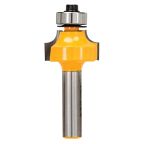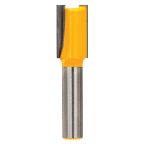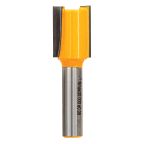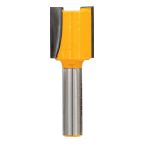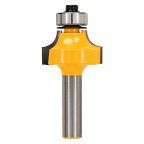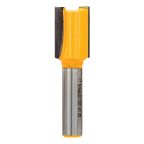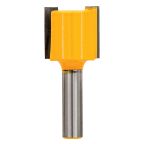Router Bits
Router Bits are replaceable cutting elements of every router as they are used to rout an area in wood, plastic or even metals. Router Bits also known as router cutters, together with a power tool (Router), can be used to cut various shapes and patterns but also grooving in flat materials. They are most often used in carpentry and woodworking for finishing a workpiece, especially in the manufacturing of frames, cabinetry, kitchen cabinets, desks, edges, doors and door frames etc.
How do router bits work?
Router bits do spin at very high speed and cut off areas of raw material.
What is a router shank?
The router shank is a cylindrical part of a router bit. It's the part of the bit that goes into the collet of the router. There are two common sizes of router bit shanks. 1/4" and 1/2". Except for very small and very large profiles, router bits typically are available in both shank diameters.
What are the most commonrouter bit types?
Router bits come in many profiles Straight Router Bits - these bits make cuts straight into a material to form a groove or dado or to hollow out an area for a mortise or inlay. Rabetting Router Bits - these bits are designed specifically to cut a rabbet in the edge of a workpiece often used to join pieces. Flush Trim Router Bits - these bits are used to trim the edge of one material flush with the edge of another– for example, trimming a veneered surface flush with a substrate or using a pattern to create multiple identical pieces. Chamfer Router Bits - these bits cut a bevel of a particular angle to ease or decorate the edges of a surface. They also can create the bevelled edges needed to join multi-sided constructions. Chamfer bits can be used to produce multi-sided boxes, planters, waste-baskets, and other decorative pieces. Edge Forming Router Bits - these router bits are most often used to cut decorative edges.
